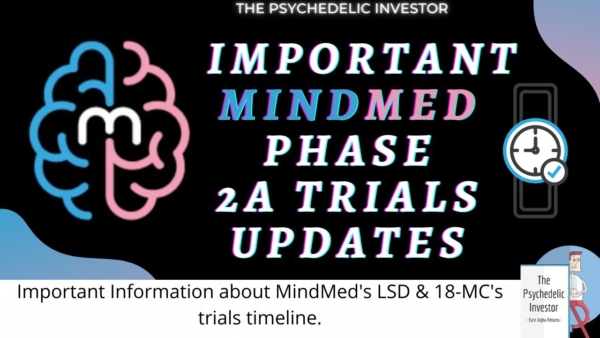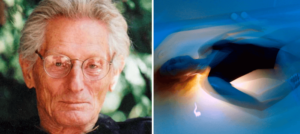
Amidst a global mental health crisis, more people than ever are taking their wellness into their own hands. This can include a wide range of treatments from counseling to psychedelics and everything in between.
Unfortunately, many of those suffering from chronic conditions like depression, anxiety, PTSD, or a substance use disorder may not know if they really need help, or once treatment has started, if they are really getting better.
Traditional screening methods used in Western medicine are expensive and time-consuming. They also take control of the healing process out of the hands of the client. To know if you need treatment you need to have the symptoms assessed. One way to do this is by using an automated self-assessment that has been scientifically validated. Two widely used survey instruments, the PHQ-9 and the GAD-7, were created in the early 1990s by pharmaceutical companies to sell more antidepressants and antianxiety medications.
During the past 30 years, we have learned a lot more about how to assess symptoms and we have also learned that illnesses are usually complex. A person might think they just have depression, but they might actually suffer from depression and PTSD or depression and panic disorder. These comorbid disorders are treated differently. It is essential to carefully evaluate all of the symptoms that a person might be experiencing to know what treatment is most appropriate.
Enter TeleSage, founded 25 years ago by Benjamin Brodey, MD, MPH, a graduate of MIT, Harvard, and Yale. TeleSage’s platform offers symptom-centered health screenings that allow both patients and clinicians to take a holistic view of diagnosis and treatment. The instrument known as The SAGE-SR (Self Report) is a user-friendly assessment tool, covering around 25 of the most common mental health conditions.
There are several companies that offer multi-domain assessments directly to the general public. However, TeleSage has been able to devote over $8,000,000 in NIH funding solely to conduct the research and development of its diagnostic and outcomes tracking systems. None of the other systems on the market have been as scientifically validated, are as inexpensive as the SAGE-SR, or allow clients to remain completely anonymous. Be wary of organizations that may seek to sell your health data and which require you to provide contact information.
The SAGE-SR works by identifying relevant symptoms based on complex, yet understandable, logic algorithms. The result is a report showing potential diagnoses as well as the pertinent positive symptoms that gave rise to these findings. The client can use the report to start conversations with healthcare professionals.
The SAGE-SR was designed to continually evolve along with modern medicine, but also to assist emerging treatments that are only beginning to be accepted by practitioners, such as psychedelics. The SAGE-SR is the first ‘evergreen’ mental health assessment directly available to clinicians and the public alike.
According to Dr. Brodey, a majority of mental health organizations have been poorly funded for decades. They are very resistant to change and they are often unwilling to adopt new technologies. Dr. Brodey told Psychedelic Spotlight, “Treatment has rarely kept pace with our knowledge of how the brain works or with the benefits of rapidly evolving technologies. TeleSage was started to bring cutting-edge diagnostic and outcomes tracking technologies to routine clinical care.”
The SAGE-SR technology intuitively adapts to each user. For example, if a person reports trauma-induced flashbacks, more questions may be presented to provide a more accurate assessment of the impact the symptoms have on the person’s life. If a certain question or symptom is of particular concern, a patient is able to emphasize that question in the report.
The HIPPA-compliant survey can be sent directly to new patients or individuals who want to participate more actively in healthcare decision making or individuals can opt to take a SAGE-SR on their own, anonymously. A SAGE-SR report with pertinent symptoms, potential diagnoses, and diagnoses that can likely be ruled out is available immediately after completion. The clinician or individual can download or share reports as they choose. Although the SAGE takes only 10-15 minutes to complete assessments can be paused and resumed later starting in the same place.
Holistic assessment ideal for integrated psychedelic medicine
The SAGE-SR can be particularly useful in psychedelic-assisted therapy. The ability to effectively measure progress at the symptom level and measure outcomes make it an ideal tool for clinicians and patients alike.
Individuals can take the SAGE-SR prior to beginning their psychedelic treatments, and again after 30 days to track progress in tandem with their therapist or guide. The Dual Report feature makes it easy for clinicians to compare reports side by side.
Dr. Brodey explained, “The SAGE-SR allows for a detailed, standardized, multi-dimensional baseline assessment of mental health prior to the start of any treatment episode and is ideal for clients who want to be able to know if ‘alternative’ interventions such as psychedelic therapy sessions are helpful.”
In addition to being helpful on the patient level, the SAGE-SR may enable practitioners to be more effective. This will be especially crucial as psychedelic medicine evolves; tools from TeleSage may transform the space as we know it. Pharmaceutical companies will only pay for expensive FDA approval studies if they have a patent on the medication being evaluated. A scientifically validated multidimensional instrument yields clean datasets that will demonstrate how well unpatented medications such as psychedelics work.
“Clinicians using the SAGE-SR will begin to see correlations between symptom clusters in the SAGE-SR and how psychedelic therapy sessions proceed,” suggested Dr. Brodey. “This could also be very powerful in determining the best treatment approach that clinicians should take with that individual.”
TeleSage at the forefront of mental health treatment
TeleSage is trusted by leading healthcare institutions and leading research organizations, including major universities. Notably, TeleSage has taken no money from outside investment firms. This allows their staff to have full creative control and ensures that mental health, not marketing, is the top priority for the company.
The vast majority of people who suffer from mental illness are never diagnosed and never receive care. It is time to empower them, to give them access to the detailed clinical information they need to make important decisions for themselves.
If you’re a clinician interested in integrating the SAGE into your practice, sign up now and get 20 administrations+reports for free! Email info@telesage.com to claim the 20 credits. If you are not a clinician and would like to take the SAGE-SR anonymously yourself, go to www.sagesr.com





